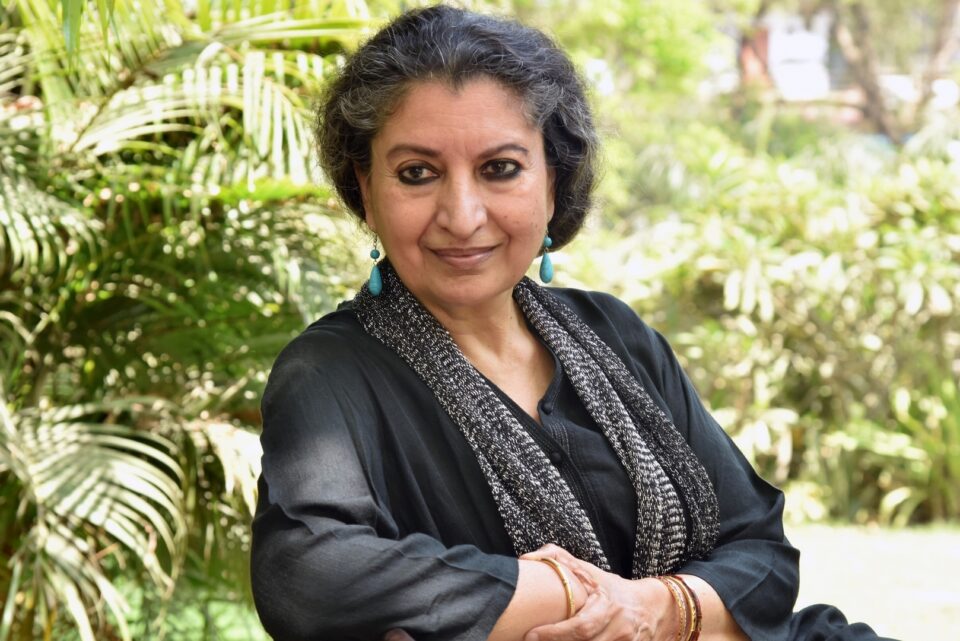New Delhi, May 26, 2022: (Staff & IANS): Geetanjali Shree’s ‘Tomb of Sand’, translated from Hindi by Daisy Rockwell, has won the International Booker, the first novel translated from Hindi to win the coveted
£50,000 prize.
Shree and Rockwell winning the prize not only marks the award’s first Hindi winner, but also the first time a book originally written in any Indian language has won, reports the Guardian.
Titled ‘Ret Samadhi’ (Rajkamal Prakashan) in Hindi, the book centers
around a north Indian 80-year-old woman who slips into a deep depression after
the death of her husband and then resurfaces to gain a new lease on life. Her
determination to fly in the face of convention – including striking up a
friendship with a transgender person – confuses her bohemian daughter, who is
used to thinking of herself as the more ‘modern’ of the two.
To her family’s consternation, she insists on travelling to Pakistan,
simultaneously confronting the unresolved trauma of her teenage experiences of
partition, and re-evaluating what it means to be a mother, a daughter, a woman,
and a feminist.
For someone who stormed the Hindi literary scene with her debut novel ‘Mai’, as
a writer, it becomes part of one’s unconscious and subconscious to look, hear,
smell, and see stories around you, in you. “So there is some, still
inarticulated, but full life, circulating inside you all the time. And the
moment happens, not quite by your choice when the muse bends over you and something
begins to unravel and pen comes to paper. Many variables come together and a
work emerges, triggered by any small or big thing. In the case of ‘Ret
Samadhi’, the image of an old woman lying with her back turned to everyone in a
joint family and apparently with no interest in living any longer, set me off.
My curiosity grew as to is she turning her back on the world and life or
preparing to get up into a rejuvenated, reinvented new life! From there the
novel took off. It was a long journey full of fun, pain, joy, anxieties, the
works,” Geethanjali said in an earlier interivew.
The author is clear that writing must never be extraneously motivated or influenced.
“I write to express as best as I can, as creatively and sensitively as I
can, and that is the only expectation I am propelled by. I let no one tell me
what, when, how I must write.”
Adding that awards, praise and are extraneous to this basic activity, and are
incidental, she said: “Of course, if they are positive, it adds a new
dimension to my happiness and fulfilment, but, they are not and never will be
my impetus.”
Shree, whose works have been widely translated into different languages including
French, German, Korean and Serbian, feels that translation is dialogue and
communication. It is never a fixed, frozen and complete exchange. “It is
ongoing, live and enriching – some things are explained better, some remain
confounding, just as in any communication. Some things may also get lost, but
some things also get added. Just as when two people talk, they enrich each
other and enlarge each other’s way of seeing, being, and experiencing, so is
also the communication underway in translation.
The gains of it are immense. One cannot fear it for the risks that may be in
there too. Communication is worth it, risky or not! Dialogue, which is what
translation is, is the best thing in human life and the way forward.”
Stressing that it is extremely important that the author and translator share a
rapport, Shree said: “You need a rapport which establishes that both of
you share the same wavelength, sensibility, values. If a fanatic,
narrow-minded, purist picks up my book for translation, it is, without doubt, a
recipe for disaster.”
Speaking about her process, the author, who has also been actively associated
with theatre – in 1989, a group of theatre artists, writers, musicians and
painters got together to form ‘Vivadi’, said: “My writing is the process.
Except that I must work regularly and for long hours, there are no rules about
it. I have no set formula and like to let the dynamics of unfurling a beginning
and issues it throws up take over and take me across a variegated
terrain.”
Deriving her characters from the physical world and space within — “a mix
of both. And such a mix that even if they relate to recognisable things/people
somewhere, they are fictional,” she feels that there is a need not just
for translations into English but also and as much for translations across
South Asian languages.
“Is English going to be the only language in which all other literature
has to be accessed? One, what about those who are not well versed in it; two,
we surely want a multilingual, multicultural scene where many languages are in
dialogue with many others, not English alone becoming the overarching big
language and all others aspiring to get access within it.”
The author, who has also finished another novel, said: “For some years it
has been sitting on my table, ready and waiting. One of these days I will pick
it up and hand it to the publisher.”





